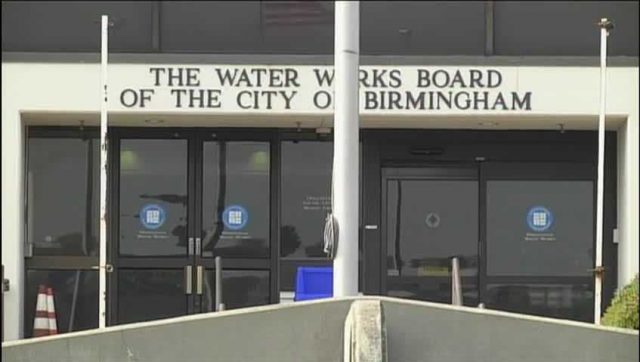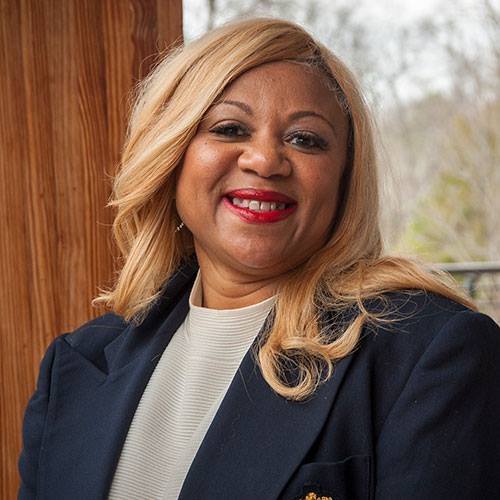
The Alabama House of Representatives on Thursday voted 66-27 to pass a contentious bill that takes control of the Birmingham Water Works Board from the city of Birmingham and makes it a regional board governed by several counties.
The vote came after two hours of debate. The bill now awaits Gov. Kay Ivey’s signature.
Republican lawmakers from the Birmingham suburbs sponsored the bill, which was opposed by Democratic representatives from the city.
Birmingham controls six of the nine seats on the current board.
The bill, by Sen. Dan Roberts, R-Mountain Brook, replaces that system with what the sponsor said would be a seven-member board.
The Birmingham mayor, Birmingham City Council, and Jefferson County Commission will each have one appointment.
The governor will have one appointment, and that person will be a resident of Jefferson County.
Shelby County and Blount County will each have one appointment.
The lieutenant governor will have one appointment with no residency requirement.The bill adds some qualifications for board members, including requirements for backgrounds in business, finance, and, for one slot on the board, engineering.
Roberts and supporters of the bill said the goal was to create a professional board that would improve service and put customers first.
But Democrats and members of the BWWB say the bill wrongly takes control that should remain with Birmingham. They said more than 90% of BWWB’s customers live in Jefferson County, and more than 40% live in Birmingham.

Rep. Neil Rafferty, D-Birmingham, opened Thursday’s debate by saying the bill undermines the lawmakers elected to represent Jefferson County and the people they represent.
The bill was proposed as a statewide measure, which meant the Republican majority, which holds three-fourths of the seats in the House and Senate, decided the fate of the bill.
Rafferty said it should have been a local bill, giving lawmakers from Jefferson County more influence about whether it would pass.
Rafferty also said the bill could not be considered without acknowledging the “elephant in the room” — that Birmingham is a majority Black city surrounded by predominantly white suburbs and the city’s history of racial division.
Rep. Jim Carns, R-Vestavia Hills, who sponsored the bill in the House, said problems with the BWWB are well known.
“This is an attempt to correct some of the problems,” Carns said.Carns said the goal was better service, lower rates, and long-term stability.
The BWWB ranked last among 21 mid-size water systems in the South in residential customer satisfaction, according to J.D. Power.
Carns called the bill “the miracle on Goat Hill” because it had passed the Senate 30-0 after negotiations that changed the original version of the bill, which called for a five-member board.
Six of the eight Democratic senators in the Senate, including two from Birmingham, voted for the bill.
But on Thursday in the House, Rep. Juandalynn Givan, D-Birmingham, said the bill wrongfully abolishes a duly appointed board.Givan disputed claims that the BWWB and the system’s management have been incompetent.
Givan said lawmakers have taken no similar action against other utilities that have had problems.
“It is a taking,” Givan said. “I don’t care how you look at it. It is a taking.”

Rep. Patrick Sellers, D-Birmingham, said he wore a black suit because it was a sad day for Birmingham.
Sellers read information about the scope of the BWWB system and the board’s strong ratings on water quality.
Sellers proposed an amendment that would have prohibited state elected officials or former legislators from serving on the board, among other changes.
Carns opposed the amendment, and the House rejected it 71-28.
Rep. Ontario Tillman, D-Birmingham, proposed an amendment to remove Blount County’s appointment on the board and reassign that seat to Birmingham.The House voted the amendment down, 70-28.
Rep. Jim Hill, R-Moody, told Carns the new BWWB should include a seat for St. Clair County, which is served by the BWWB. He described the fast growth of St. Clair County and said it should have a voice on the regional board.
The BWWB serves customers in five counties — Jefferson, Shelby, St. Clair, Blount, and Walker.
“We need representation for the money we’re paying,” Hill said.
Hill proposed an amendment to give St. Clair a seat on the board. Carns opposed it, and the House rejected it 54-38.

Rep. Rolanda Hollis, D-Birmingham, asked Carns what was the motivation for the bill.
Carns said it came in response to complaints from BWWB customers.
Carns said one goal is to stop the BWWB from hiring lobbyists and a public relations firm under expensive contracts.
Rep. Mary Moore, D-Birmingham, said those contracts did not cause high rates for BWWB customers.
“We’re not trying to take Alabama Power because they’ve got a lot of lobbyists,” Moore said.
Carns said there was no prohibition in the bill on the new board hiring lobbyists or a PR firm.
Moore said the biggest factor in driving up bills was the cost of the bankruptcy of the Jefferson County sewer system.
“Their debt was so astronomical it made national news,” Moore said.
Moore said Carns had not sat down with her and others who represent Birmingham to talk about problems with the BWWB.
Moore said there is no guarantee that the bill and the new board would result in lower rates.
Rep. Kelvin Datcher, D-Birmingham, reiterated what he said was the justification for the city’s control of the board, saying that 92% customers are in Jefferson County and 41% are in Birmingham.
Datcher said Shelby County has 6%, St. Clair County has 1.7%, and Blount County has only 592 customers.
“It’s a sad day for this thought of regional cooperation everybody wants to talk about,” Datcher said.
“Everyone wants us to work together. But right here today what happened is undemocratic and it absolutely, absolutely destroys the opportunity to continue to work together as a region.”
Sellers said the BWWB has had its challenges but has made strong improvements.
Sellers said he believes the Jefferson County delegation could have agreed to some revisions to the BWWB, such as adding qualifications for board members, that could have been included in a local bill.
He said the decision to involve the entire Legislature in what should have been a local issue could have repercussions.
“What about the other delegations that have local matters?” Sellers said. “The precedent that was set today, I think will spill over into the rest of those.”
Roberts, the Senate sponsor, has said the bill needed to be a statewide bill because if affected five counties served by the BWWB.
Givan, who is running for mayor of Birmingham, issued a statement after the bill passed.
“Today marks a deeply disappointing moment for the City of Birmingham as the Municipal Appointing Authority and for the thousands of ratepayers who rely on the Birmingham Water Works Board,” Givan said.
“The passage of House Bill 330 represents a blatant overreach — a takeover of an authority that rightfully belongs to the City of Birmingham and its residents. This move is not only absurd, it is dangerous, and its long-term consequences could be devastating in ways we may never fully recover from.”
Mayor Randall Woodfin also issued a statement about the bill, saying his concerns are for the Birmingham ratepayers.
“This bill is not in their best interest,” Woodfin said. “The city does not own the water works nor operate it but the passage of this legislation clearly weakens the voice of a major portion of the utility’s ratepayers.
“While I have raised concerns about BWWB over the years, the current board has taken steps to improve. That momentum has now been halted by this power grab from state lawmakers in Montgomery who clearly did not consider the best interest of our residents.”




